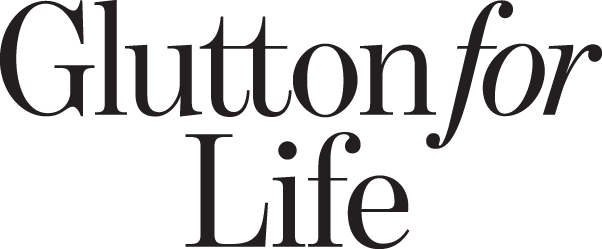5.25.10 Dairy Queen
Meet Louise, an enormous black milk cow who'd just given birth to this still-trembling little calf on Saturday morning when we stopped by our small local farm to pick up some raw milk. They're kind enough to sell it to us right from the cow. Well, pretty much. It's legal in New York, but only if you buy it directly from the farm. (It's banned outright in New Jersey, and available at retail in Connecticut.) You'll need to bring your own container—I use big glass jugs. If this recent article in New York magazine is any indication, raw milk is gaining in popularity as people begin to understand more about its nutritional value and appreciate its wonderful taste. (Old-style delivery services will bring it right to your door!) My mother-in-law was absolutely horrified at the idea of us drinking raw milk, and that's a testament to how this country has been brainwashed into believing that industrialized food is cleaner and safer. But in fact, high-heat pasteurization and homogenization do a great disservice to the quality and value of the milk we drink. And most cases of salmonella associated with milk in the past decade have been from pasteurized products. Perhaps, like I did, you shun milk altogether? As recently as a couple of months ago, I was posting about all the alternatives—soy, almond, rice, hemp. Now that I've learned about how the high-heat and chemical extraction processes essentially damage these foods, I really can't recommend you consume any of them on a regular basis. I know, I know, the ground beneath us is always shifting. But I feel much more empowered now that I have begun to do my own research (forever indebted to Sally Fallon of Nourishing Traditions) and really understand the science behind my food choices. Don't despair, there's still plenty of good stuff to eat.


whey, raw milk and fresh cheese alongside farm-fresh eggs
Let's just take a look at cow's milk for right now. There are tons of agricultural and nomadic societies dating as far back as 9,000 years that have done very well depending on the milk of cattle, sheep, goats, horses, water buffalo and camels for their animal protein, fat and "white blood." We're all born able to produce lactase so we can digest mother's milk. In some peoples, a recessive gene allows for the continued production of this past childhood—the Masai, for example. They subsist largely on the milk and blood of their cattle, and they're all tall and rail thin with amazing teeth. This kind of natural selection falls apart when we begin to move around and don't stick to the terrain and diet of our ancestors. Currently, only about 30-40% of the world's population produces lactase in adulthood. Some people are also unable to tolerate the milk protein called casein, which is extremely difficult for the body to digest.This is where the practice of fermenting or souring milk products comes into play. This process breaks down lactose and predigests casein, making yogurt, kefir and other soured products much easier to tolerate. Butter and cream contain little lactose or casein and so are pretty well tolerated in their natural state, though fermented or soured butter (European style) or cream (creme fraiche) go down even better. Cheese is basically concentrated casein so it can be difficult for some people to digest, but when it's made from raw milk there are many more enzymes present to help digestion.One very important thing you need to know about any dairy products is that they really should be from grass-fed animals that have received no growth hormone and no high-protein soybean meal. Can you just trust me on this for now? It's complicated on both scientific and political levels and I will get into both in a later post on eating beef.What's wrong with pasteurization? you ask. Heat changes the amino acids milk contains and makes the proteins in it less available to your body. It also promotes the rancidity of unsaturated fatty acids (sound familiar?) and destroys vitamins. It totally negates the anti-stiffness factor that helps protect your joints, and kills all the vitamin B12 that you need for healthy blood and a properly functioning nervous system. Because pasteurization also destroys enzymes, it prevents the body from absorbing calcium and so can contribute to osteoporosis, and the strain it puts on the pancreas to produce digestive enzymes has been linked to diabetes. There's more, but I think that'll do, no?When we first brought raw milk home last month, I was a little wigged out about the whole thing. I thought it would taste gamey, spoil more quickly; hell, I didn't know what to expect. Next thing you know, I'm souring it to make fresh cheese (and its byproduct—whey!); ice milk with fresh strawberries; and a daily cup of creamy chai that I am so addicted to! Making yogurt is up next. After almost a month with no sugar, no starches and plenty of raw milk, my energy is through the roof, my skin is unbelievably clear, I have dropped some pounds and I HAVE NO ACHES AND PAINS.

These eggs? Straight from the farm with yolks of the most brilliant orange color. These birds are running free, eating greens and insects and seeds and transmitting all that great nutrition straight to me. I eat two every morning—scrambled with greens, hardboiled and eaten with sea salt and butter or baked in a pool of cream. No bread, but I'm planning to dive into that soon. I've never done much baking so there will definitely be a learning curve. (I'm even thinking about grinding my own flour!) It's going to be all about sourdough—another process of fermentation that helps the digestive system. I'm hoping to bake something that even G can handle...







10 Comments